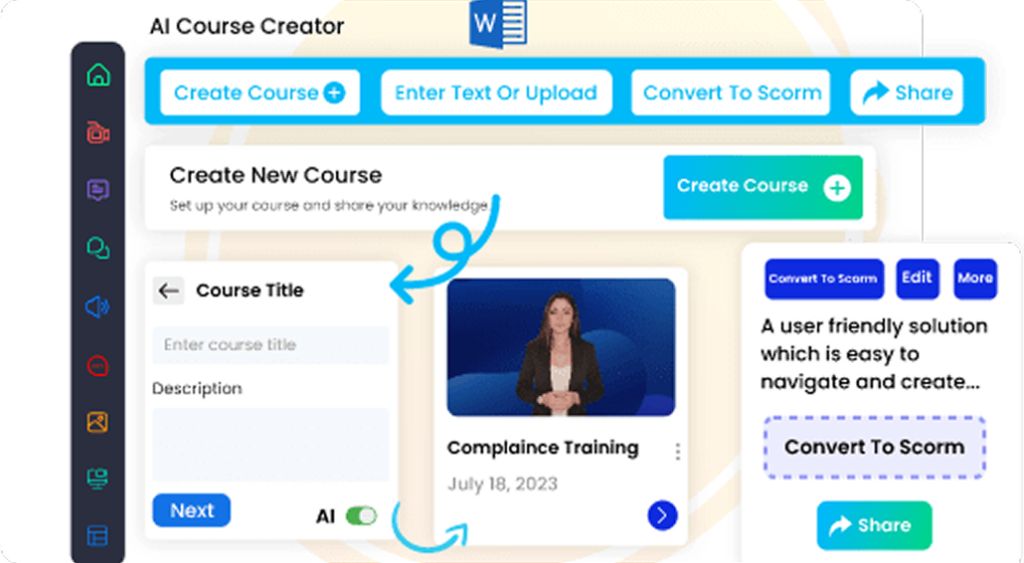The Growing Importance of Leading Remote Teams
Remote work isn’t just a passing trend; it’s the future. According to recent studies, more than 70% of employees globally work remotely at least once a week. This shift demands that organizations rethink their leadership strategies. In traditional office settings, leaders could rely on face-to-face interactions and physical proximity to stay connected with their teams. However, leading a remote team requires new approaches, tools, and skills.
Without the right training and tools, managing a remote team can feel like navigating a ship through foggy waters. Effective communication, team cohesion, trust-building, and performance management are some of the key challenges that leaders face. Here’s how proper leading remote teams training can make all the difference in managing virtual teams successfully.
What Does Leading a Remote Team Involve?
To understand the need for the right training, it’s essential to first grasp what it means to lead a remote team. Remote leadership involves more than just managing tasks from a distance; it requires leading by example, maintaining transparency, fostering collaboration, and ensuring that team members feel connected despite the geographical separation.
- Building Trust: Without daily in-person interactions, trust becomes the cornerstone of effective remote leadership.
- Maintaining Engagement: Remote leaders need to ensure that employees feel motivated and connected to their work and the team.
- Effective Communication: Clear and consistent communication is vital to ensure that team members understand expectations, goals, and deadlines.
- Facilitating Collaboration: Remote leaders must leverage the right tools to facilitate collaboration, ensuring that virtual teams can work together seamlessly.
- Providing Feedback: Giving regular, constructive feedback helps remote teams stay aligned and improve performance.
Why Training is Crucial for Leading Remote Teams
Training provides leaders with the necessary tools and strategies to handle the unique challenges of remote team management. Here are some of the reasons why leading remote teams training is essential:
1. Enhancing Communication Skills
One of the most common mistakes leaders make in remote settings is assuming that communication will happen naturally. In reality, without face-to-face interactions, leaders must be deliberate and strategic about communication. This includes mastering virtual communication tools, ensuring clarity in emails and messages, and practicing active listening.
2. Building Remote Team Culture
Remote teams can struggle with feelings of isolation, which may hinder productivity and collaboration. Through training, leaders learn to foster a positive remote team culture, promote inclusivity, and create a sense of belonging, even in a virtual environment.
3. Time Management and Productivity
Remote work often blurs the boundaries between work and personal life, leading to overwork or disengagement. Training helps leaders set clear expectations, define work hours, and encourage healthy work-life balance for their team members.
4. Leveraging the Right Tools and Technologies
In a remote work environment, the use of digital tools becomes critical. Leaders need to understand how to use project management software, communication platforms, and collaboration tools effectively. Proper training ensures that leaders are not just familiar with these tools, but are able to optimize their use for better productivity and team collaboration.
Learning Built Around Your Goals.
Discover how our courses can align with your training goals and drive real results.
Key Elements of Effective Leading Remote Teams Training
Effective remote leadership training must cover several key areas to equip leaders with the skills they need to succeed:
1. Communication Strategies for Virtual Teams
Strong communication is at the heart of any successful remote team. Training should focus on establishing guidelines for effective digital communication, such as using video calls for important discussions, setting regular check-ins, and encouraging open channels for feedback. Leaders should also be trained on how to handle misunderstandings and how to maintain transparency even when face-to-face interactions are limited.
2. Emotional Intelligence and Empathy
Leading a remote team requires a high level of emotional intelligence. Leaders need to be able to recognize and address emotional cues, even when team members are not physically present. Training in empathy can help leaders understand their team members’ challenges, provide support during tough times, and maintain morale.
3. Conflict Resolution Skills
Conflict can arise in any work environment, and remote teams are no exception. Remote leaders need to know how to address conflicts in a way that fosters collaboration and trust. Training should include techniques for resolving conflicts constructively and maintaining team harmony even in challenging situations.
4. Time Zone Management
For global remote teams, time zones are often a logistical challenge. Effective training helps leaders understand how to manage team schedules across different time zones while maintaining a balance between work and personal time for all team members.
5. Goal Setting and Performance Management
Clear goal setting is essential for remote teams to stay focused and productive. Training should cover best practices for setting SMART goals, tracking progress, and providing feedback in a virtual setting. This helps leaders ensure that remote employees stay aligned with organizational objectives and perform at their best.
How to Effectively Lead a Remote Team
Now that we’ve discussed the importance of leading remote teams training, let’s explore some practical tips on how to effectively lead a remote team.
1. Prioritize Clear Communication
Clear communication is vital for virtual teams. Regular check-ins, status updates, and open channels for team members to ask questions are essential. Use tools like Slack, Microsoft Teams, or Zoom to stay connected and keep everyone on the same page.
2. Build Trust Through Transparency
Trust is the foundation of any successful team. Remote leaders should share updates, goals, and expectations transparently to keep team members informed and involved. Being open about challenges and seeking input from team members fosters trust.
3. Use Collaborative Tools Effectively
Leverage project management tools like Asana, Trello, or Monday.com to assign tasks, track progress, and facilitate collaboration. These tools help ensure that remote teams remain organized and productive, even when working from different locations.
4. Foster a Healthy Work-Life Balance
Remote work can sometimes lead to burnout due to the lack of clear boundaries between work and personal life. Leaders should encourage breaks, respect time off, and create a culture that values work-life balance. This helps keep employees engaged and energized.
5. Provide Regular Feedback and Recognition
Feedback is crucial for personal and team development. Regular feedback ensures that team members know where they stand and how they can improve. Recognition of achievements, even small ones, goes a long way in boosting morale and motivation.
Conclusion: Invest in the Right Training for Long-Term Success
Leading remote teams effectively is not just about managing tasks; it’s about creating a culture of collaboration, trust, and engagement. By investing in leading remote teams training, leaders can equip themselves with the skills and tools needed to manage virtual teams successfully. With the right training, leaders can overcome the challenges of remote work and ensure their teams remain productive, motivated, and aligned with organizational goals.
Ready to enhance your leadership skills and take your remote team to the next level? Invest in the right training today to build high-performing, engaged remote teams for the future.
Access 100+ fully editable, SCORM-compatible courses featuring an integrated AI Tutor and an in-built authoring tool. Seamlessly compatible with any LMS, these courses are designed to elevate your training programs.
Explore Our eLearning Course Catalog






















